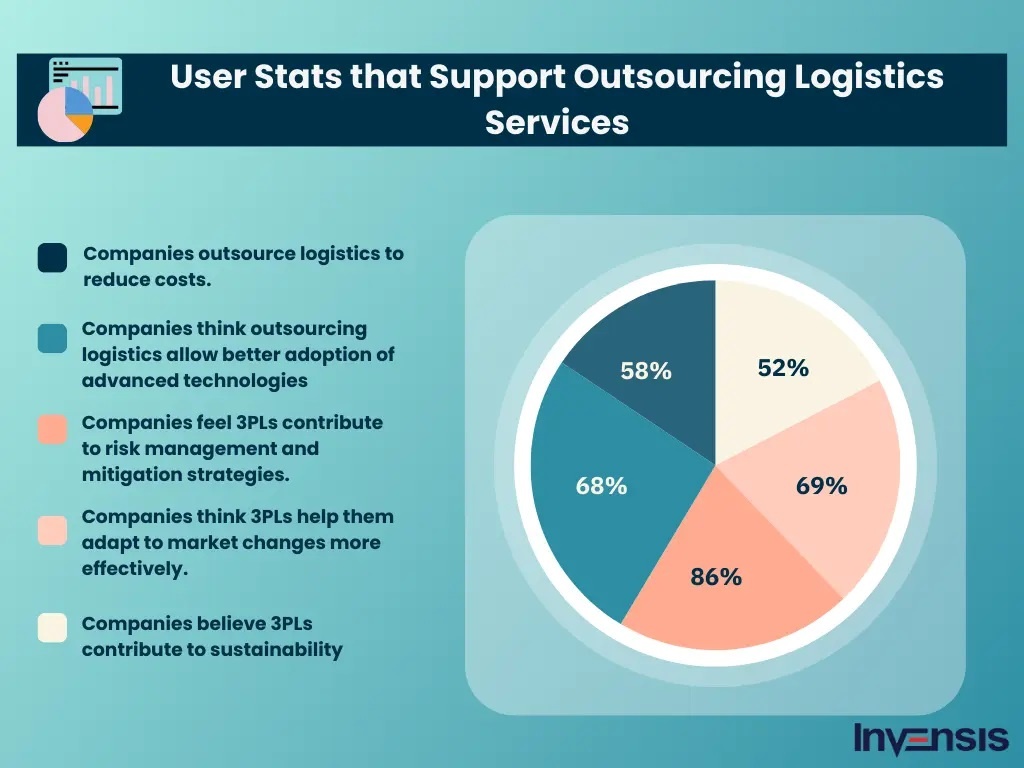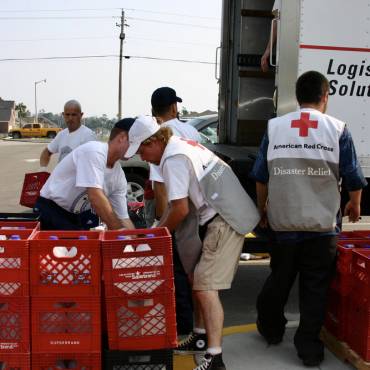Whether you’re a new startup or a large-scale operation, you’ll need logistics services to ship manufacturing materials and finished products. While some businesses choose to handle logistics needs in-house, others may find working with a third-party transportation company more efficient. It’s why an estimated 90% of Fortune 500 companies partner with third-party logistics companies.
If you want to follow their lead, find eight factors to remember when choosing a transportation partner below. Plus, discover one of the best rated trucking companies in Rhode Island.
Why work with a third-party transportation company?
The biggest advantage to outsourcing your logistics and shipping needs is that you won’t have to devote time and resources in-house. You might also experience other benefits from partnering with a third party, like cost savings and higher customer satisfaction rates.
According to a 2022 third-party logistics (3PL) study, 73% of companies who use 3PL providers agree that using a 3PL improved their customer service. What’s more, 64% of respondents said that using a 3PL helped save money on their overall logistics costs.


What to consider when choosing the best transportation company for your business
While working with an external transportation company can improve your business, not all companies offer the same range of services. So, keep the following criteria in mind when choosing the right option for you.
The transportation company type
Different companies may specialize in varying business models, making it essential to understand the following common transportation company types.
- Third-Party Logistics (3PL.) A company that offers essential logistics services, like shipping, distribution, and warehousing services.
- Fourth-Party Logistics (4PL.) A company that works with one or more 3PLs on your behalf and offers supply chain management services.
- Carrier. Companies that physically transport goods via trucking, rail, air, or ocean. A 3PL may work with a carrier or may provide these services themselves.
- Freight broker. A company that can connect you with carriers who suit your needs and can negotiate shipping rates on your behalf.
Ask companies what their scope of services includes, and where their specialties lie.
Equipment and technology
What kind of equipment does the transportation company have at their disposal? For example, if they ship items by truck, does the company own their own fleet of trucks, or do they work with owner-operator truck drivers? What equipment and resources can they connect you with before signing a contract?
The Transportation Company Shipping specialty
It’s also important to understand what type of shipping a transportation company can offer.
For example, some trucking companies specialize in less-than-truckload (LTL) shipping, where your goods will share space with items from other companies on a truck. This form of shipping is ideal for companies who don’t regularly ship enough items to fill up an entire trucking container.
Other companies may offer truckload (TL) shipping, where your goods will be the only items on the truck. This can be a good choice if you regularly ship large quantities of items and need a whole truck trailer for yourself. While some trucking companies may only offer one type of shipping or the other, many offer both.
Scale and scope
Will your transportation company be able to scale with your business? While you may only need LTL shipping today, you might need to move up to TL shipping in five years. Alternatively, if you might need to scale back your business needs, will the company be able to accommodate this, or do they require a minimum service commitment?
Ensure that your transportation company can meet the needs of your business at all stages of growth, so you won’t need to shop for a new partner later.
Transportation Company method
What mode of shipping does your transportation company specialize in? Will they primarily ship your products via trucking, or will they utilize other transportation methods to reach your end destination – like rail or airway?
It’s also good to verify the transportation company’s location and its distance from major highways, railroads, or ports, so you can understand how fast your items will be able to ship.
Safety and Compliance
Consider how a transportation company prioritizes safety during shipping.
Is the company in compliance with Federal Motor Carrier Safety Administration (FMCSA) regulations, or do they have marks on their record? If you need to ship potentially hazardous materials, like chemicals, are the drivers trained and certified to handle them safely? Ask your company about their safety policies, so you can feel rest assured in your decisions.
Pricing structure
The cost of trucking per mile is around $2.25 on average, but this can vary depending on your location and other factors. Beyond the specific cost you’ll pay for shipping, consider what other services or values a transportation company can bring to the table for their fee – like reliability or on-time shipping.
Customer service
If you run into an issue during shipping, you need a company that’s ready to help with swift customer service. Assess how a transportation company communicates with you, so you can feel assured that they’ll be ready to provide solutions when you need them.
A New England Trucking company for your business
If you’re ready to work with a Rhode Island transportation company that checks all your boxes, N&D Transportation is here for you.
We offer both LTL and TL shipping and distribution throughout the New England area, and we can also help you with national and international shipping options through our partner carriers. We can also provide warehousing services if you’re looking for a comprehensive logistics partner for your business.
Contact us today to learn what we can do for your supply chain.



